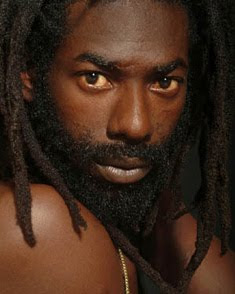Righting History
Julia Alvarez knew exactly the significance of the history she was tackling when she wrote In the Time of the Butterflies. She unearthed the pain and terror of a regime that few outside of the Dominican Republic knew about. As historical fiction, In the Time of the Butterflies chronicles the oppression of Dominican dictator Rafael Trujillo's 31-year-reign as well as the details of daily life for the revolutionary Mirabel sisters. The story doesn't just document history but it connects readers to the legends of the Mirabels, also known by their underground code name "The Butterflies," revealing their legitimate place in world history.
I read this book with a firm knowlege of its importance but I have to admit, I wasn't all that eager to delve into Trujillo's cruel world and the Mirabel's suffering. The Time of the Butterflies is not a quick, breezy read. It flashes between the three sisters, Minerva, Patria and Maria Teresa, using diary entries and childhood memories to show what their life was like before they became revolutionaries. A fourth sister Dede, is the sole survivor who lives to tell their story. I read it all with trepidation because I knew what would happen to these women after they married, had children and established their adult identities. They would be martyred.
Alvarez demonstrates chilling skill as she introduces Trujillo through the sister's adolescent eyes. First he pounces on a classmate at the girls' convent school. When she gets pregnant and his wife finds out, he packs the teen off to Miami. At a Trujillo-sponsored dance, the sisters know not to drink anything because of the dicatator's habit of drugging and then raping girls. When he becomes interested in the rebellious and outspoken Minerva, her father is jailed when she refuses him and the family comes under surveillance from then on. Of course, it gets much worse. Trujillo killed anyone who disagreed or criticized him. The sisters joined the underground movement to overthrow Trujillo and they were jailed and tortured.
The compelling point of In the Time of the Butterflies is that the small details were fictionalized but the overall story is real. At a time (1940s-1960) and in a place where women were not permitted to control much more than their children, the Mirabel sisters helped organize and lead a movement that would free their country. November 25, the day that they were beaten, strangled and their bodies thrown in cars down a cliff to make it appear like an accident, has been declared International Day for the Elimination of Violence Against Women in the Mirabel sisters honor. They left behind six children, the oldest of whom, is now a prominent figure in the Dominican government. Julia Alvarez has said that she wrote In The Time of the Butterflies because she was haunted by the Mirabels. Her father had been active in the same underground organization as the sisters but escaped with his family to the U.S., four months before the Mirabels were murdered. They gave their lives for freedom and Alvarez has made sure that history will remember the Mirabels.




Comments
Have a good day.
Greetings from London.
Cubano, The Dominican underground actually followed Castro's revolution in Cuba and used some of his ideas. There is so much about Trujillo and his genocide of thousands of Haitians, that is still informing history.
I'm always searching for more books on Caribbean history.
Catherine, Llosa's book is another classic although the focus is entirely different.
Tiffany, it's a great addition to any Caribbean book collection.
Happy weekend !
Jean-Luc, thanks.
Love the photos of the sunsets - talk about picture postcards. And as for Dunstan...it's amazing the people we meet throughout our lives and the stories/experiences they have to share! Brilliant stuff!